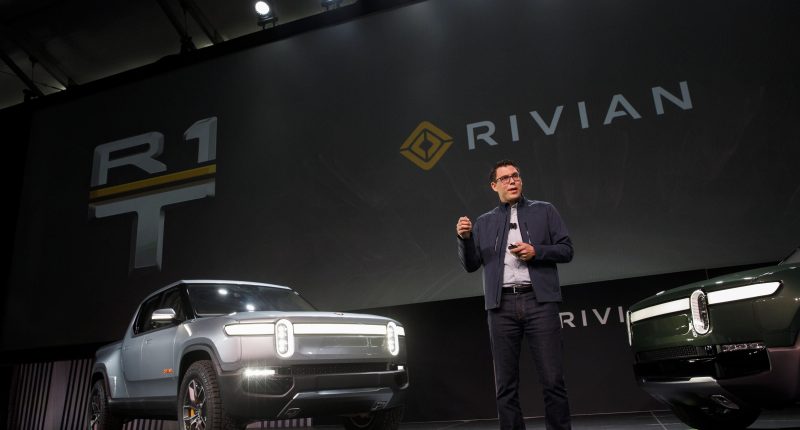Rivian, the electric vehicle maker that aimed at rivalling Tesla but is yet to launch a single EV in the market, has priced its initial public offering (IPO) at $78/share, something that could put its valuation at $66.5 billion. The company is backed by the likes of Amazon and Ford.
The offer price of Rivian’s shares was increased from the previous range of $57 to $62 per share as the company is expecting a lucrative IPO, and it will be one if it goes through. Rivian’s IPO — and its entire journey so far — is highly bemusing. The company has yet to establish a business model, let alone prove it. It hasn’t rolled out a single product for commercial use yet. Rivian said in its prospectus that it will lose up to $1.28 billion in the third quarter, while revenue will range from zero to $1 million. All of this, for an IPO that would value it more than Ford (one of its lead investors) at current market prices.
This IPO is set to be the seventh-biggest IPO in the US public markets history and one of the biggest in the past decade after Alibaba and Facebook.
According to regulatory filings, Rivian has offered 153 million shares of common stock at the price and gave underwriters an option to buy another 22.95 million shares. The stock will trade on the NASDAQ under the ticker symbol RIVN. Rivian said it expects the IPO to bring in $11.9 billion in gross proceeds, before accounting for commissions, discounts, and other expenses and excluding the underwriters’ option to buy additional shares – if that is done, Rivian will bring in $13.8 billion.
If this actually happens, then Rivian’s IPO will exceed that of Uber, which raised $8 billion in its IPO in 2019. Additionally, if Rivian is valued at nearly $70 billion (it will be valued at over $77 billion on a fully-diluted basis), it will come close to its competitor Ford, which is valued at $80 billion.
The startup has raised a lot of capital in recent times, it raised over $10 billion from investors earlier, while Amazon led another $700 million funding round and announced the largest purchase of light-duty EVs in history – no less than 100,000 delivery vans from Rivian by 2030, and 10,000 new Rivian-Amazon delivery vehicles as early as next year.
The Tech Portal is published by Blue Box Media Private Limited. Our investors have no influence over our reporting. Read our full Ownership and Funding Disclosure →






